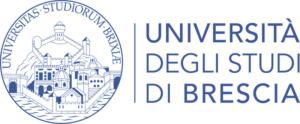Call: MAECI – Italy-China Science and Technology Cooperation 2018-2020
Role: coordinator
Responsible for UniBS: Prof. Maurizio Artoni – Departiment of Mechanical and Industrial Engineering
Contact: maurizio.artoni@unibs.it
Start date 01/01/2018 – End date 31/12/2021
Abstract
Quantum technologies are driving forward a technological revolution that’s becoming the engine of innovations in science, economics and society in the 21st century. Early laboratory prototypes aimed at tackling specific problems in the field of metrology, computing and communication technology (ICT) have shown just how vast the potential of these technologies is. This revolution takes advantage of “entanglement”, a natural phenomenon recognised as early as the 1930s yet investigated only in the past few decades, forming today’s basis for new quantum-enabled technology. Within this perspective we explore a novel form of entanglement: “color-entanglement”. We are concerned with the generation and manipulation of two-colour entangled photons by exploring temporal-spatial modulations of coherently driven atomic samples, whether in the form of new optomechanical cavity elements or free-space standings, and dipole-dipole interactions of suitably arranged Rydberg atoms. The physics mechanisms are general and will be extended to multi-frequency and multi-photon entanglement, compelling when compared e.g. to standard entanglement encoding where multi-mode operations are not accessible. The mechanisms will be adapted to work for atomic ensembles embedded in solids, making both solid and non-solid interfaces solutions well poised to efficient harnessing of colour entanglement. Clearly, both have a potential for developing new quantum information and communication technology (ICT) architectures. Both Italian and Chinese teams play an active role on the international stage and will both benefits from such a bilateral cooperation in term of (i.) improved and expanded applications and (ii.) human resources advanced training. The Italian project’s PI further benefits from a longstanding cooperation with the National Institute of Optics & the European Laboratory for Nonlinear Spectroscopy (http://www.lens.unifi.it), a centre of excellence where the proposal’s results will be tested and at no cost to the participants of the project.
Participants
- Università degli Studi di Brescia (coordinator), Italy
- Center for Quantum Sciences, Northeast Normal University, Changchun, China
- Scuola Normale Superiore di Pisa, Italy
- Beijing Computational Science Research Center, China

